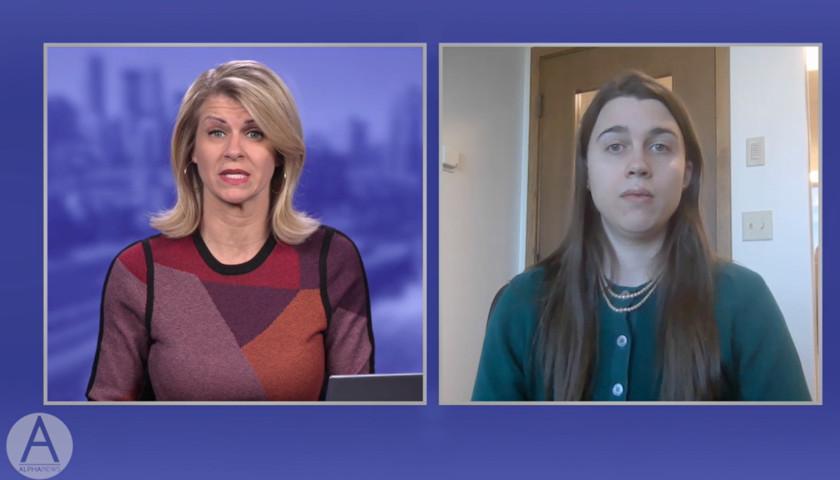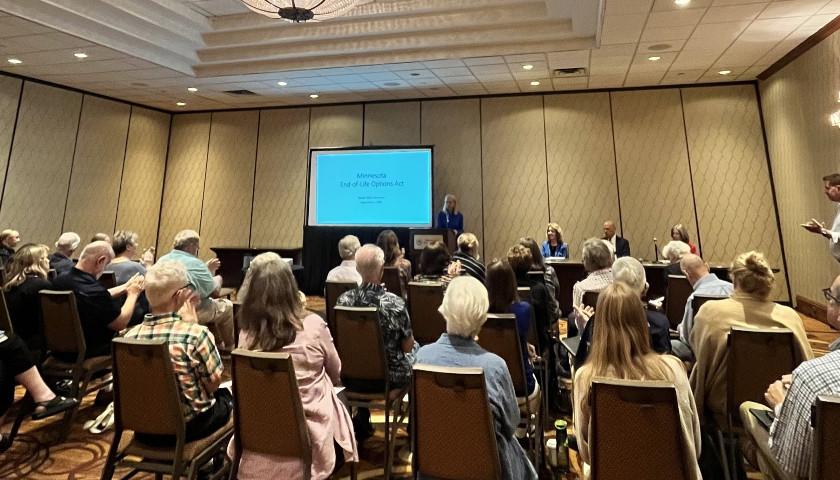by Hank Long
The 2023 Minnesota legislative session wrapped up about three weeks ago, but that doesn’t mean lawmakers have stopped working.
Democrats in a state House legislative committee voted themselves a pay raise last week that allows legislators in the House of Representatives to retroactively receive a per diem increase of about $20 per day they served during the 2023 legislative session.
The House Rules and Legislative Administration Committee voted 8-5 on party lines to increase House members’ per diem from $66 to $86 for the entirety of the 2023 and 2024 legislative sessions, and apply that increase retroactively to the start of this past session, which was Jan. 2.
While the vote was mostly procedural in nature — as those dollars were accounted for in the omnibus state government finance bill that the House and Senate passed last month — the discussion that ensued during the June 7 House rules meeting over the per diem resolution took a decidedly partisan tone.
Republicans on the committee voted against the resolution and expressed frustration at what they described as a less than transparent process for lawmakers to award themselves raises retroactively.
“I’ve been [on this committee] for about a decade, and I don’t recall a time where we’ve done a retroactive per diem change,” said Rep. Marion O’Neill, R-Maple Lake (pictured above, left).
House Majority Leader Jamie Long, DFL-Minneapolis, (pictured above, right) who serves as chair for the rules committee that voted to increase the per diem, defended the action, even as he said he didn’t have any information as to whether House lawmakers had ever retroactively awarded themselves per diem increases.
The per diem increase will place lawmakers on par with the $86 per diem that state senators receive, Long said.
“The Senate in the past has outstripped us in terms of both member compensation and staff compensation, and that’s something we are looking to end,” Long said during the June 7 meeting. “We want to be consistent with the Senate in both member compensation and staff compensation.”
O’Neill noted that per diem for state senators is taxed as income.
In total, the per diem pay raise is anticipated to cost the House about $350,000 in 2023, considered a “long year,” because it is a budget year, and $270,000 during short years, said Barbara Juelich, who serves as controller and CFO for the House of Representatives.
Rep. Elliot Engen, R-White Bear Lake blasted the per diem pay raise, calling it “egregious,” and took his frustrations to Twitter following the vote.
“The fact that we are sitting here and Minnesotans are actually struggling — they don’t get to retroactively increase their pay,” Engen said. “I don’t think we should be participating in that.”
Lack of transparency on pay raise, Republicans say
The change also reflects the per diem House members will receive during the 2024 legislative session, and any “interim” days outside either the 2023 or 2024 sessions where they conduct official business related to their roles in the legislature.
Rep. Kristin Robbins, R-Maple Grove, said she didn’t like that the committee was taking a vote on a retroactive per diem raise after session has been completed. But Long said that the money dedicated to the increase needed to be appropriated first before the rules committee could officially ratify it.
“The per diem amount that we are voting on now was something that I made public and was discussed early in session, so this is not new information,” Long contended.
The per diem increase comes after the Legislative Salary Council voted in March to bump the base pay of lawmakers salaries by $3,500. The Legislative Salary Council was created in 2016, via a constitutional amendment that voters passed in a statewide referendum. Before that, lawmakers hadn’t given themselves a raise in nearly 20 years. The raise increases the salaries of lawmakers from $48,150 per year to $51,750 per year.
The committee also passed a resolution to add House majority whip and House deputy minority leader as leadership salaried positions so that legislators in those positions could be eligible to receive up to “140 percent of the compensation of other members.” That provision, like the per diem raise, was also included in the omnibus state government finance bill, Long said.
Those changes will impact the salary of Rep. Athena Hollins, DFL-St. Paul, who currently serves as House majority whip, and Rep. Paul Torkelson, R-Hanksa, who currently serves as deputy minority leader. Both Hollins and Torkelson abstained from voting on the resolution, which passed on a divided voice vote.
– – –
Hank Long is a journalism and communications professional whose writing career includes coverage of the Minnesota legislature, city and county governments and the commercial real estate industry. Hank received his undergraduate degree at the University of Minnesota, where he studied journalism, and his law degree at the University of St. Thomas. The Minnesota native lives in the Twin Cities with his wife and four children. His dream is to be around when the Vikings win the Super Bowl.
Photo “Marion O’Neill” by Minnesota House of Representatives. Photo “Jamie Long” by Minnesota House of Representatives. Background Photo “Minnesota State Capitol” by McGhiever. CC BY-SA 4.0.






Retroactive pay raises? The law should be that legislators cannot vote themselves an increase. I recognize the cost of living increase but this doesn’t feel right where they voted themselves a raise. None of their taxpaying constituents received a retroactive salary increase. For such self serving bills, and it is self serving, perhaps the effective date should not be retroactive rather implemented following the next election.